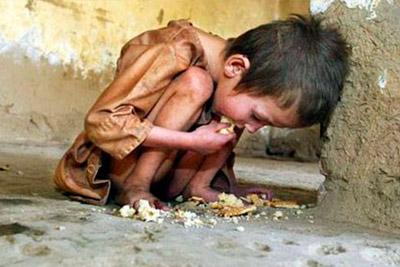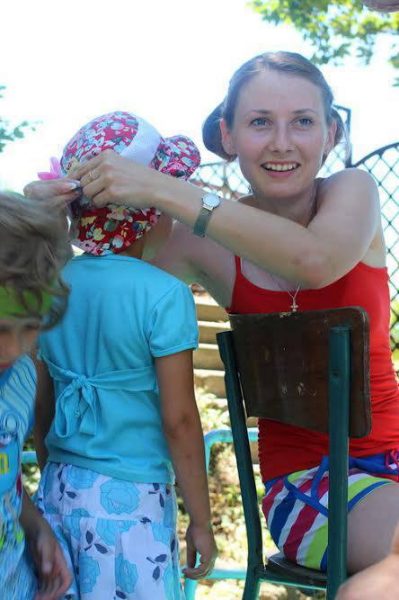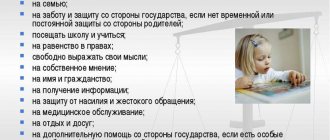The initiative was taken by the Chairman of the Federation Council Committee on Constitutional Legislation and State Building, Andrei Klishas, and the Chairman of the State Duma Committee on State Building and Legislation, Pavel Krasheninnikov. As Pavel Krasheninnikov emphasized, it is necessary to minimize government intervention in the family sphere. In his opinion, there is no doubt that issues of removing children from families should be resolved judicially, and not administratively, as now, when guardianship and trusteeship authorities often abuse their powers.
The Russian government supported the bill, subject to its modification taking into account the comments made. For example, there are questions about emergencies.
“Today, there is a quick procedure for removing children from the family if parents abuse their rights or if the child is in a psychologically traumatic situation,” said lawyer Elena Ovchinnikova. “If employees of the guardianship and trusteeship authority, visiting a family, find a child in danger, he is taken away immediately and placed in a medical facility.”
According to her, there can be various situations in which a child is removed, for example, violent acts against the child, a threat to his sexual integrity, leaving the child in danger, and the like.
“Information about cases can come from different sources: from relatives, neighbors, teachers, passers-by, employees of the Ministry of Internal Affairs,” she says. “The new bill does not specify which cases are considered exceptional, and it is not known in advance whether the law will allow preserving the life and health of a child if necessary.”
It happens that a child, out of resentment, will call the guardian and tell lies.
Like, wouldn’t it turn out that if there is a real danger, guardianship will still go through the courts, which means it will take a longer route, while the child’s life will be under threat.
Procedure
Grounds for removing a child from the family
In 2021, the Family Code provides for the following reasons for removing a child from the family:
- The mother and father are deprived of parental rights (Article 69 of the RF IC). The seizure procedure can be carried out only after the court decision has entered into legal force. The decision is executed by bailiffs. Often, together with bailiffs, specialists from the district guardianship department at the place of residence of the minor are present. Additionally, employees of the district police department may be involved. If a court decision is being executed in relation to a child under 3 years of age, medical workers may be present.
- Mother and father have limited parental rights (Article 73 of the RF IC). The withdrawal procedure is identical to the situation with deprivation of rights.
- The mother or father poses a direct threat to the life or health of a minor (Article 77 of the RF IC). The seizure is carried out on the basis of an order from the district administration. The procedure can be carried out exclusively in relation to the blood mother and father. Confiscation cannot be carried out from grandparents, guardians or other legal representatives.
Example . In late autumn, the child welfare department received a signal that children were crying for a long time in the house of single mother Elena. Specialists left for an examination. When visiting the family, it was discovered that the woman was intoxicated. Her 2-year-old daughter and 3-year-old son are closed on the loggia. Since the weather was cold outside, there was a clear threat to the life and health of the children. The minors were sent to the hospital for examination. After which, they were redirected to a shelter.
As can be seen from the example, Art. 77 of the RF IC is used as a last resort. If specialists had not intervened, the children could have died.
Example . After purchasing an apartment in a new building, the Perov family began making renovations. Due to the noisy work, a conflict arose with neighbors. A neighbor reported to the child welfare department that the Perovs were cruelly treating their 4-year-old daughter. The specialists left at the signal. During the visit, it turned out that the family had just moved, they had food for the child, a place for their daughter to sleep, and seasonal clothing. The child did not appear malnourished or beaten. The girl attended kindergarten. The teachers had no complaints against the parents. The neighbor repeatedly sent complaints to the guardianship department, but there were no grounds for removing the child.
Reasons
Many parents, especially young ones, are interested in why guardianship authorities can take their child away. In accordance with the regulations of Article 77 of the Family Code of the Russian Federation
, the only significant reason for removing a minor child from the family is the danger to his life and health arising from the actions or inaction of his parents or guardians.
Indisputable reasons
, according to which a child can be removed from the family, are:
- Alcohol, drug or toxic addiction of parents or guardians;
- Repeated episodes of domestic violence;
- Failure of parents to comply with precautionary measures when involving a child in domestic work;
- Unlawful exploitation of child labor;
- Inability to organize the educational process necessary for the harmonious development of the offspring;
- In cases where the mother and father have already been deprived of parental rights (clause 5 of Article 71 of the RF IC) or their rights to the child are limited (clause 4 of Article 74 of the RF IC);
- Sexual harassment of minors by relatives or persons in whose care the children are.
However, the legislation does not provide clear definitions of which negative factors are a significant reason for the removal of a minor citizen by the guardianship authorities. For this reason, employees of a trustee organization may regard completely harmless everyday nuances as destructive. For example, in practice there were cases when the offspring was taken away because he was in the kitchen while the mother was preparing food. It was understood that in the kitchen there were many cutting and piercing objects from which the child could be harmed, and even an open fire from a gas stove that was turned on.
Where do child guardianship authorities take children?
The place where the child is placed directly depends on the grounds for removal:
- When parents are deprived or restricted of parental rights . The child is placed in a specialized organization. Depending on age or health status, this may be a family center (orphanage), boarding school, orphanage, or boarding home. The minor is placed under supervision as one without parental care.
- In case of selection . If a parent has managed to harm the child’s health (injury, frostbite, hypothermia), then the child is placed in the children’s ward of the nearest hospital. If there are no injuries, the minor is sent to a rehabilitation center (shelter).
A child cannot be handed over to relatives just like that. In case of deprivation/restriction of rights, it is possible to obtain permanent (if a full package of documents is available) or preliminary (if there is a passport and a positive examination report) guardianship.
If a minor is seized under Art. 77 of the RF IC, then it cannot be transferred to relatives immediately. First, specialists must visit their housing and check the conditions.
Important! Relatives who live together with the mother and father cannot be guardians.
Reasons why a child may be taken away
Article 77 of the RF IC states that guardianship authorities have the right to select children from disadvantaged families if there is a threat to their life. The following cases meet this criterion:
- no food;
- the child is not provided with the necessary medical care;
- parents suffer from alcoholism and drug addiction;
- living conditions do not meet generally accepted standards;
- the child is in constant danger.
Guardianship officials cannot monitor all families at once, so an important role is assigned to eyewitnesses of child abuse. After their application, an authorized person will visit the family to check living conditions and interview the baby.
Guardianship authorities can remove a child only on the basis of a certified document stating the reasons for this decision. In the future, he will be transferred to a special institution. If there are close relatives or people who want to take on parenting responsibilities, the guardianship authorities will approve guardianship or trusteeship.
Denial of the right to education
All children have the legal right to receive an education. It is enshrined in the constitution (Article 43):
- Children can and should receive a complete secondary education.
- The state guarantees free and accessible education (pre-school, secondary).
- On a competitive basis, any citizen of the Russian Federation has the opportunity to receive higher education completely free of charge.
- All children should receive secondary education. Parents, guardians or guardianship authorities are responsible for fulfilling this condition.
- The authorities of the Russian Federation support the accepted forms of education (full-time, part-time, part-time) and establish basic standards that determine the level of education.
The state does everything possible to ensure that the child receives the necessary knowledge, allocating funds from the budget and creating special programs for low-income families.
The mother or father can only take the baby to school. If parents are unable or do not want to fulfill the responsibilities assigned to them, then a fine and even criminal liability may follow. The guardianship authorities have the right to take away the child for this offense, but initially there is usually a warning. Recorded incidents of violence may become grounds for guardianship authorities to immediately remove the child. It is customary to divide this criterion into several forms:
Abuse causes a child to become withdrawn or overly aggressive. In the absence of action on the part of the guardianship authorities, there is a high probability of causing mental and physical injuries that have a negative impact on the child’s worldview.
Neglect of vital needs
It’s not news to anyone that parents must clothe, feed and monitor the hygiene and living conditions of their children
It is equally important to thoroughly examine your child every year, get vaccinated and contact a pediatrician or therapist if signs of illness are detected.
Urgent intervention by the guardianship authorities is necessary if the child does not go to school, lags behind his peers in development and does not have the opportunity to dress warmly. In some dysfunctional families, children even die from hunger and cold because their parents stop looking after them. Such situations lead to dire consequences and therefore require urgent measures.
Non-participation in raising children
The main responsibility of parents is to educate their children. They must guide the child and provide him with shelter, food, medicine and the opportunity to develop physically and intellectually. Full provision occurs until adulthood. Guardianship authorities can take away a child for non-participation of parents in his upbringing or resort to certain sanctions:

- registration;
- regular visits by representatives of guardianship authorities;
- restriction or cancellation of paternal and maternal rights;
- condemnation in the media.
USEFUL INFORMATION: How to survive your husband's betrayal: advice from a psychologist on how to live after your husband's betrayal
How can I return it?
The return procedure depends on the reasons for withdrawal:
- Upon deprivation of parental rights . The mother and father will need to go to court to restore parental rights (Article 72 of the RF IC). The law gives them the opportunity to initiate the process within 6 months. Otherwise, the child may be put up for adoption. The minor returns to the family after the court decision enters into legal force.
- When parental rights are limited . The parent needs to initiate the process to cancel the restriction (Article 76 of the RF IC). If he does not submit an application to the court within 6 months, then the guardianship department is obliged to initiate a process to deprive him of his rights. If the parent proves correction in court, then after the court decision enters into force, the minor will be returned to the family.
- When a child is removed under Art. 77 IC RF . Within 7 days, the guardianship department is obliged to initiate the process of depriving parental rights. The child can be taken away only after the claim has been considered. The court may consider the evidence insufficient and the child will be returned to the parents. And the mother or father will be given a warning.
Expert opinion
Stanislav Evseev
Lawyer. Experience 12 years. Specialization: civil, family, inheritance law.
Often, removal by the guardianship department is confused with placement in an organization under a police act. For example, a small child was walking alone on the street. He cannot explain who his parents are or where he lives. The baby will go to a rehabilitation center (shelter).
But the mother or father will be able to pick him up only after receiving the conclusion of the guardianship department. Parents must prove that they do not have psychological disorders, do not abuse alcohol or use drugs. When providing this information, the specialist issues an official document.
Example . Mary and Peter had a daughter, Camilla, 3 years old. Maria went to work. Peter stayed with his daughter. At noon he put the girl to bed and fell asleep with her. The girl woke up, opened the locks and went out into the yard. People passing through the courtyard of a high-rise building noticed a naked little girl playing in the sandbox without adult supervision. Citizens called the police. The child was taken to the shelter. Parents had to collect documents to prove the situation was accidental.
In most cases, citizens side with their parents. Few people think that the father’s careless behavior could lead to tragedy. The child could go out onto the roadway or repeat leaving the house in winter. One mistake could lead to tragedy. Therefore, experts determine whether the situation was accidental or whether parents constantly expose their children to danger.
Legislative regulation
- Legal relations in the family are regulated mainly by the civil code of the Russian Federation.
- The guardianship and trusteeship authorities act based on a number of legislative acts, for example the RF IC, starting from chapter twelve:
- Article 69. Deprivation of parental rights;
- Article 70. Procedure for deprivation of parental rights;
- Article 77. Removal of a child in the event of an immediate threat to life or health.
- Federal Law No. 120 “On the fundamentals of the system for preventing neglect and juvenile delinquency”;
- Federal Law No. 124 “On basic guarantees of the rights of the child in the Russian Federation”;
- Federal Law No. 159 “On additional guarantees for the social protection of children left without parental care,” etc.
https://www.youtube.com/watch?v=ytaboutru
The smallest resident of our country is the most vulnerable. It is very important not to remain indifferent to the negative treatment of younger generations. Even if this is not your child, but being an eyewitness to gross violations, it is the moral duty of every respectable person to protect the childhood of the little man.
Why does the guardianship authority visit the family?
In accordance with Art. 122 of the RF IC, specialists from the guardianship department can visit any family actually living in the territory of their jurisdiction.
Reasons for checking
| No. | Cause |
| 1 | Signal from any citizen (relative, neighbor, stranger) |
| 2 | Message from the educational institution where the child is studying (kindergarten, school) |
| 3 | Message from a medical organization employee |
| 4 | Police department signal |
Important! If a child is admitted to a medical organization with an injury of any kind, the medical worker is obliged to notify the guardianship department. And specialists must check the housing and make a conversation with the parents within 3 days.
It is possible to remove a minor from the family in the event of an injury only if it was caused by the parents. The basis for seizure is the initiation of a criminal case.
Threat to a child's life and health
A threat to the life and health of a child is understood as a set of actions on the part of his parents, which can lead to dangerous injuries and abnormal development of the child, both physically and morally.
It is worth noting that domestic criminal legislation provides for severe liability for a threat to human life and health, even if it was not implemented. In the case of violation of the rights of a child, a threat to life and health will be understood as the wrong way of raising a child, regular violation of his fundamental rights and failure to follow his interests.
At the same time, parental responsibility will arise not only if the child is constantly subjected to physical punishment, but also in situations where there is a verbal threat to carry out these actions. The state believes that even the threat of physical punishment expressed to a child can negatively affect his development and future life, and therefore this must be stopped immediately.
However, it is also worth paying attention to the fact that before carrying out the process of removing a child due to constantly emerging threats to his health and development, the authorized bodies are obliged to check all existing evidence to establish the reality of this fact. To do this, you should take the following steps:
- Interview the child’s neighbors and relatives about how the parents are raising him;
- Receive confirmation of a dangerous situation from representatives of the guardianship authorities, kindergarten and school;
- Conduct a full medical examination of the child in order to establish his injuries (including those of a psychological nature).
Procedure for removing a child
It is believed that a specialist from the guardianship department can take a minor from his mother without any special reason.
In practice, the procedure should proceed as follows:
- A report of abuse of a minor is received.
- Specialists visit housing.
- If there is evidence of ill-treatment, a removal order is issued.
- The child is placed in a specialized organization.
- 1 copy of the order is given to the parent, the second remains in the department.
3 factors for removing a child:
- Personal presence of parents.
- A real threat to the child.
- Availability of an order.
Can a child be taken away from a normal family?
It is believed that a child can be taken away from normal parents. This information is partially true. However, the basis of the actions of the guardianship department is a signal. And it doesn’t matter who it came from.
Example . Katya's parents divorced. The girl remained to live with her father. The man entered into a second marriage. The relationship between Katya and her stepmother did not work out. The girl asked her father for new expensive boots. The family budget could not afford such a purchase. Having received a refusal, Katya called the helpline and reported that her father and stepmother were beating her. The message was transferred to the guardianship department. Specialists visited the family. The girl confirmed that she was being beaten. The minor was placed in a shelter until the circumstances were clarified.
The situation in the example is quite common. Children often use the opportunity to send a signal to the guardianship department as blackmail. Due to their age, they cannot always assess the consequences for themselves.
Important! Specialists cannot visit a family without reason. But if there is a signal, they must react. Moreover, seizure is a last resort.
The day of withdrawal is the hardest
Ulyana Sorokina, psychologist at the “Our Children” charity foundation:

Ulyana Sorokina
– There are children who have been in a boarding school since they were 4 years old: from kindergarten they immediately went to an orphanage. They have fragmentary memories of their family and parents, but they are also sharp and emotional.
The most important moment with which childhood memories were associated was the day of the removal. Despite difficult situations within the family (for example, children were starving or adults treated them poorly), this day was critical for the children.
USEFUL INFORMATION: How the procedure for alimony payments is regulated and how it is regulated
What I remember is not some conflicts or misunderstandings, but this change of conditions. For many, the seizure was a shock. What all the stories have in common: no one explained anything - neither the guardianship authorities, nor the parents; the children were taken away without preparation.
Let me note that we interviewed children in boarding schools who had long been removed from their families. Psychologists did not work with them (on experiencing loss, bereavement) at all. Perhaps now this procedure is a little gentler, but the sensations in children are the same.
The situation is most critical for those who were taken from their families when they were small; older children subconsciously prepared for this: they compared their lives and their peers from other families, recalled some moments related to inspection checks, one of the relatives shared with them guesses about that the children will be taken to a boarding school because their mother is so and so. Teenagers have experience, a critical assessment of events, and the ability to comprehend them.
It is important to note that the children did not want to go to boarding school. There was an isolated case when a girl asked to go there herself.
At the age of 12, she wrote a statement that she did not want to remain under her grandmother’s care and that she wanted to live in a boarding school with her friend. She made a choice in the heat of the moment, and recently confessed to me that she was sorry and worried.
During the research, we asked children about their first day at the boarding school. They said that it was easier for those who ended up in a boarding school with sisters and brothers. An interesting observation: all the children condemned their mothers and justified their fathers. There were situations when the fathers themselves brought their sons and daughters to boarding schools and left them, but the children mentally rehabilitated them and blamed their mothers for what happened. These are some inexplicable deep things inherent in nature - at the level of reflexes.
If a child has a potential adoptive parent, his appearance changes dramatically, he smiles, he lives with hope, he quickly begins to call his adoptive parents mom and dad, even at 13 years old. There is hope for a different life - outside the system, where everything is equal.
It is easier to go through grief with adoptive parents than alone, but I am talking about professional families who will accept the child and help him go through all the stages. Quite often, parents do not accept the child’s past and try to forget it: “Why bother poking around in it.” And the child lives like in a boarding school. Inside himself, he understands that pain is a taboo topic, that no one is ready to talk about it with him, which means that he is not fully accepted,
Growing up, the child begins to test the limits, boundaries, how much worse it can be. It all ends badly. Don’t be afraid to talk about the past - it will bring you closer and help you understand. There is no need to evaluate the child’s blood parents, but we need to give him the opportunity to speak out and open up.
How to behave when checking from guardianship
Let's consider why a child may be removed from a normal family. When specialists visit, citizens are often lost. Therefore, misunderstandings may arise.
| No. | Popular mistakes | Consequences |
| 1 | Don't open the door | Since the obligation to check is imposed by law, specialists will come regularly. In case of aggressive refusal, police officers may be involved. It’s easier to pass the test once than to create a negative impression. |
| 2 | Be rude | Of course, testing is stressful for a parent. But the specialist is simply doing his job. Calm communication and display of the child's personal belongings will help reduce the visit time and create a positive impression. |
| 3 | Threaten | It must be remembered that the actions of a specialist in the guardianship department fall under the performance of official duties. Threats may result in criminal prosecution. |
When conducting an inspection, the parent must show:
- documents (passport, child’s birth certificate);
- availability of food for children;
- a place for minors to sleep and rest;
- children's personal items and seasonal clothing;
- a place to do homework.
If possible, it is necessary to provide an explanation of the reasons for the signal. For example, conflict with neighbors, ex-spouse, causes of injury.
How to behave when security guards are in the apartment
The main thing is not to panic, remain calm and confident, try to be friendly. If “uninvited guests” come to you, do not rush to open the door, it is not safe. First, clarify the full name, position and purpose of the representative’s visit. Now you need to make sure that it is you who have been assigned the test. Exact information can be found by phone. Only after confirming the information should visitors be allowed into the house.
If employees do not have the appropriate documentary authority (court decisions or an act of compulsory seizure), they do not have the authority to oblige you to obey. It's up to you, but refusal will make the situation worse when they return with the official paper.
- whether the apartment requires renovation or its availability;
- cleanliness in the apartment;
- appearance of family members;
- availability of sleeping places for everyone in the house;
- contents of the refrigerator (fresh food, hot dishes, baby food);
- presence of domestic animals and insects;
- there is an unpleasant odor in the room (mustiness, rotting, dampness, etc.);
- physical and moral condition of children;
- presence of signs of drinking alcohol or other harmful substances;
- manner of communication between loved ones;
- the need for hospitalization or medication (in case of illness).
Having visited the family in person, employees must make sure that the children living with you have the proper conditions and there is no risk to their life and health.










